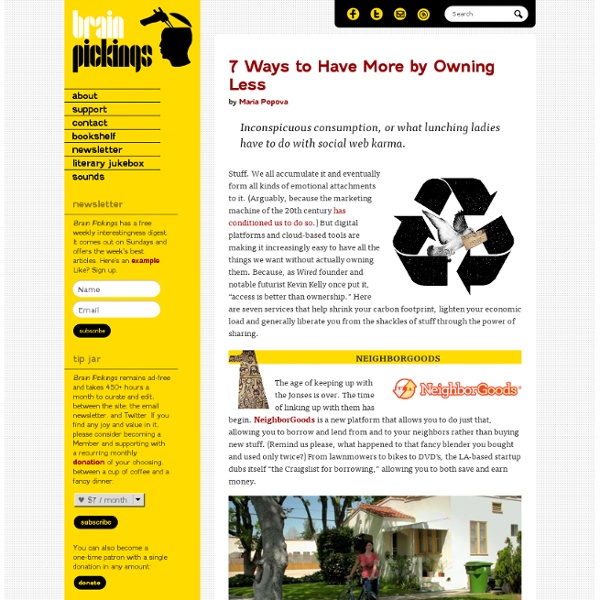The GIM Initiative Releases 60 New Case Studies of Inclusive Business Models
The “Growing Inclusive Markets” (GIM) Initiative, a UNDP-led global multi-stakeholder research and advocacy initiative on inclusive business models (i.e. financially sustainable models that include the poor on the demand side as clients and customers, and on the supply side as employees, producers and business owners along the value chain), has recently released 60 new case studies of such models across sectors, regions and types of companies. They complement and enrich the first set of 50 cases commissioned back in 2008. The case studies have been developed by a highly qualified group of 30 Research Fellows covering 20 countries and representing well established institutions in the developing world, such as the Lagos Business School in Nigeria, the Indian Institute of Management in Bangalore, and the American University in Cairo, to name but a few.
Gastrokid
How Souplantation Became a Certified Green Restaurant Chain
Becoming more environmentally friendly made sense to Joan Scharff a few years ago when she was creating a "brand book" describing the critical elements comprising the identity of her company's Souplantation and Sweet Tomatoes restaurants. "It occurred to me as I was doing that that going green would be a natural fit for us as a brand because we are really about fresh wholesome abundance," said Scharff, vice president of brand and menu strategy with parent company Garden Fresh Restaurant Corp. Their customers probably assumed the company already used greener business practices, she reasoned, so Scharff convinced CEO Michael Mack to cultivate its green credentials. A multi-year effort followed, leading Garden Fresh to become the largest chain restaurant in the U.S. to get certified through the Boston-based Green Restaurant Association (GRA). Scharff would be the first one to tell you the project took much longer than she expected. Reaching for the Stars
uld the desert sun power the world? | Environment
During the summer of 1913, in a field just south of Cairo on the eastern bank of the Nile, an American engineer called Frank Shuman stood before a gathering of Egypt's colonial elite, including the British consul-general Lord Kitchener, and switched on his new invention. Gallons of water soon spilled from a pump, saturating the soil by his feet. Behind him stood row upon row of curved mirrors held aloft on metal cradles, each directed towards the fierce sun overhead. As the sun's rays hit the mirrors, they were reflected towards a thin glass pipe containing water. The now super-heated water turned to steam, resulting in enough pressure to drive the pumps used to irrigate the surrounding fields where Egypt's lucrative cotton crop was grown. "The human race must finally utilise direct sun power or revert to barbarism," wrote Shuman in a letter to Scientific American magazine the following year. He also rejects any notion that Desertec carries with it even a whiff of neo-colonialism.
Apple: time to make a conflict-free iPhone | Delly Mawazo Sesete
My name is Delly Mawazo Sesete. I am originally from the North Kivu povince in the eastern region of the Democratic Republic of the Congo, where a deadly conflict has been raging for over 15 years. While that conflict began as a war over ethnic tension, land rights and politics, it has increasingly turned to being a war of profit, with various armed groups fighting one another for control of strategic mineral reserves. Near the area where I grew up, there are mines with vast amounts of tungsten, tantalum, tin, and gold – minerals that make most consumer electronics in the world function. These minerals are part of your daily life. While minerals from the Congo have enriched your life, they have often brought violence, rape and instability to my home country. Living in the Congo, I saw many of these atrocities firsthand. But the good news is that your favorite electronics don't have to fund mass violence and rape in the Congo, and neither do mine.
The year’s worst tech trend: complexity
Illustration by Robert Neubecker. If you read tech criticism often, there’s a good chance that you’ve come upon a staple of the form that I like to call the “mommy dearest” review. Your middle-aged tech journalist—the sort of fellow who could spend hours telling you about the newest developments in wireless routers—is assessing a gadget like the Kindle or the iPad, a device meant to appeal to non-techies. He begins by praising the gadget’s intuitive interface and its easy setup process, but eventually he finds that mere description doesn’t adequately convey the product’s momentous simplicity. That’s when he drops the mom bomb: This thing is so easy that even my mom could use it. I’m pretty sure I’ve never written a mommy dearest review, but I’ve come close (sorry, Dad!) But then, this year, all that simplicity was tossed out the window. But it’s not just that individual products got more difficult to use; in 2011 the entire tech ecosystem descended toward entropy.
EcoNest | Natural Building Workshops | Timber Frame Workshops | Sustainable Building



